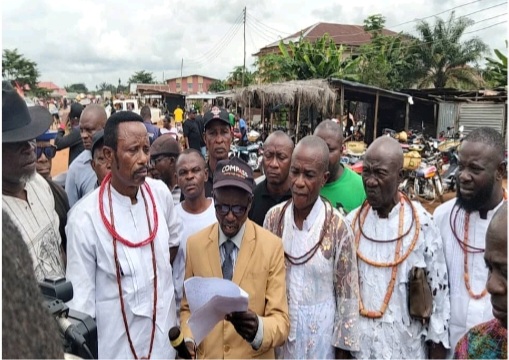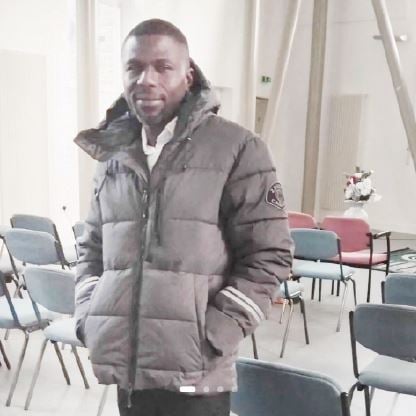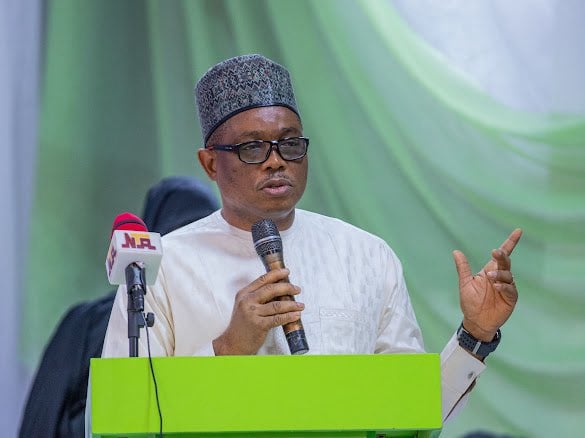
The people of Abavo Kingdom have renewed calls on the Federal Government to urgently complete the abandoned dualization of the Agbor-Amukpe section of the Uromi-Amukpe Road, describing the decade-long neglect as both a security threat and a major obstacle to economic growth.
Speaking at a press conference in Abavo on Friday, the President General of Abavo Clan Union, Mr. Justine Onyeibe, lamented that the project, awarded in 2014 and abandoned after partial mobilization of contractors, has turned the once-promising road into a nightmare for commuters and farmers.
“The state of this road is not just an inconvenience; it is the single greatest enabler of criminal activity in our region,” Onyeibe declared. “The terrible, potholed stretches have become kidnapper’s hunting grounds, forcing vehicles to crawl and making passengers easy targets.”
He stressed that beyond insecurity, the poor state of the road has dealt a heavy blow to agriculture, the mainstay of Abavo’s economy. According to him, tons of yams, cassava, plantains, tomatoes and vegetables rot by the roadside because farmers cannot transport them quickly to markets in Warri, Benin, Lagos and beyond.
“This abandoned road has killed commerce, discouraged investors, and forced our youth to see farming as poverty instead of opportunity,” Onyeibe said. “With a dual carriageway, our crops will reach markets in hours, not days. Agro-processing factories, packaging plants, and new businesses will spring up in Abavo, creating jobs and prosperity for our people.”
The Abavo Clan Union leader further highlighted that the road’s completion will not only boost trade but also improve access to healthcare, education, and tourism. Festivals such as the New Yam, Igue and Ikaba, he noted, could attract visitors if the town were more accessible.
Calling both the Federal and State governments to treat the project as a priority, Onyeibe described the road as “a covenant with the people of Abavo” and urged contractors to return to site without delay. He also appealed to the media to continue amplifying the voices of affected communities until the long-awaited road becomes a reality.
“We are not just asking for asphalt and concrete, we are demanding a future where our wealth is not trapped in the soil, but harvested, transported, and multiplied.” Onyeibe concluded.




